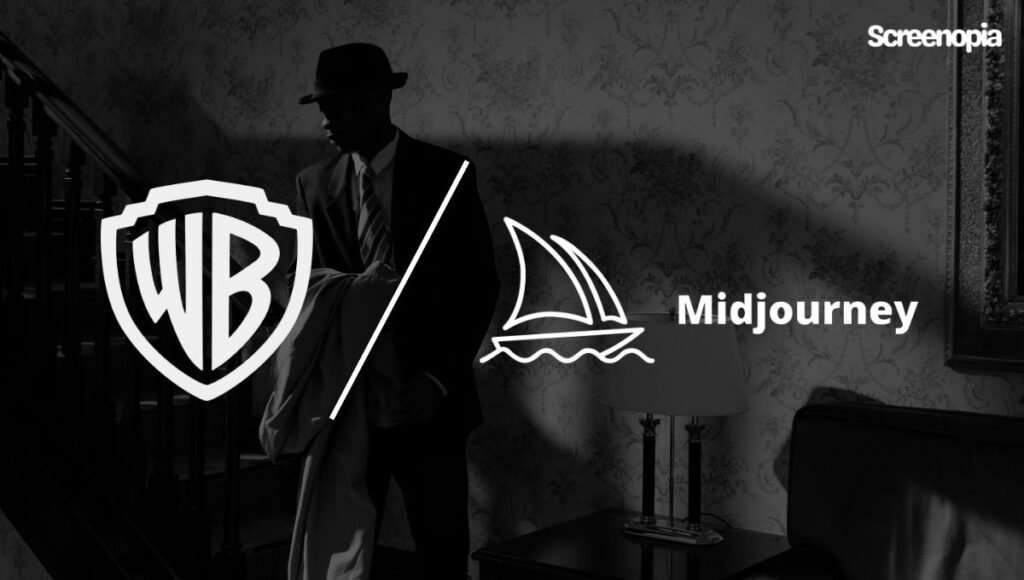Warner Bros has stepped into the growing legal fray around artificial intelligence and creativity with a high-profile lawsuit against the AI image generator Midjourney.
This lawsuit joins similar actions brought by Disney and Universal earlier this year, spotlighting a key question: how should copyright law apply in the era of AI-generated content? The ongoing legal battle raises important issues about creativity, intellectual property rights, and the future of AI tools in entertainment and beyond.
What’s Behind the Warner Bros vs. Midjourney Lawsuit?
On September 4, 2025, Warner Bros. Discovery filed suit in September 2025, accusing Midjourney of producing unauthorized images and videos featuring iconic characters like Batman, Bugs Bunny, Scooby-Doo, and Wonder Woman.
The studio claims Midjourney has blatantly copied Warner Bros.’ copyrighted characters without permission or safeguards, providing its subscribers with unlimited access to these images. According to Warner Bros., these AI-generated works are nearly identical to the originals, with visual details such as Scooby-Doo’s collar color precisely replicated.
The lawsuit also points out that Midjourney removed earlier restrictions aimed at preventing users from generating infringing content, demonstrating knowledge of copyright violations while choosing profit over protection. Warner Bros. calls this a deliberate and reckless move to infringe on intellectual property for financial gain.
Why AI Copyright Lawsuits Matter
This legal action highlights the complexities of defining creativity and ownership in the age of AI. Midjourney’s AI creates images based on vast datasets, which reportedly include copyrighted works from entertainment studios. Warner Bros. and others argue this constitutes copyright infringement since the AI replicates protected characters without authorization.
On the other side, AI companies like Midjourney claim their use of copyrighted materials falls under “fair use” because these works serve as training data rather than direct copies. They also stress the importance of AI as a new artistic and creative tool that expands imaginative possibilities.
The case underscores key questions for the creative industries and the law: When does AI cross the line from inspiration to infringement? How do we balance protecting artistic creators’ investments with embracing new technologies?
The Impact on Creativity and Innovation
Hollywood’s heavy hitters, Warner Bros., Disney, and Universal, control some of the most valuable creative properties worldwide. Their lawsuits reflect fears that AI companies are taking advantage of decades of creative labor without proper compensation or credit.
Yet, AI tools like Midjourney also offer undeniable benefits, enabling artists, designers, and creators to experiment faster and generate new ideas. Many worry that overly strict restrictions on AI use could stifle innovation and slow the adoption of emerging creative technologies.
The lawsuits force public discussions about how creativity is defined and protected in the 21st century.
Should AI be treated as a creator? What rights do human artists have over AI-generated content derived from their original works?
These questions don’t have easy answers but are crucial as AI reshapes digital creativity.
What’s Next for AI and Copyright in Warner Bros vs. Midjourney Lawsuit?
The outcome of Warner Bros.’ lawsuit could set important legal precedents for AI-generated content. If courts rule in favor of the studios, AI companies may need to harden measures to block the creation or distribution of infringing images. This could involve more stringent content filters or licensing deals with rights holders.
Conversely, if AI firms prevail, it may unlock new freedoms for AI creativity but raise concerns for traditional copyright protections. The case also comes amid an evolving patchwork of rulings and debates on AI and copyright worldwide, leaving creators and companies on uncertain legal ground.
Warner Bros.’ choice to join Disney and Universal amps up the stakes, bringing more weight and resources to challenging AI companies like Midjourney.
The battle is watched closely by content creators, legal experts, and consumers alike.
Final Thoughts
The Warner Bros vs. Midjourney lawsuit isn’t just a dispute over beloved movie characters; it’s a landmark moment defining the relationship between AI and creativity. As artificial intelligence becomes an increasingly powerful creative tool, society must carefully navigate protecting original works while encouraging technological progress.
For now, this case invites all of us, fans, creators, and innovators, to consider what originality and authorship mean in a world where algorithms can paint, compose, and imagine alongside humans.



